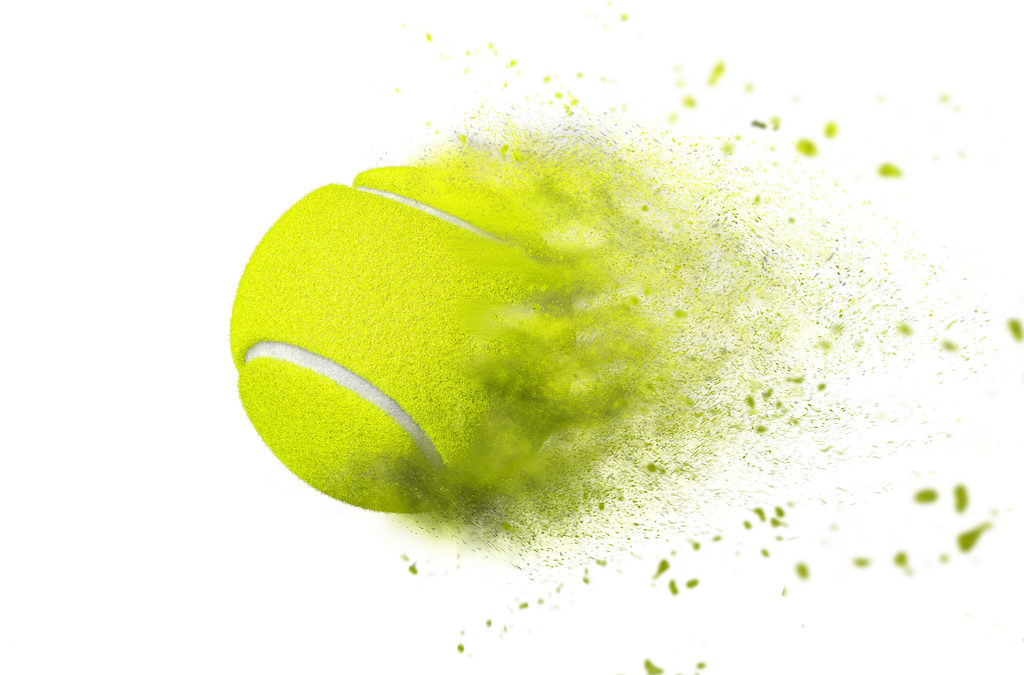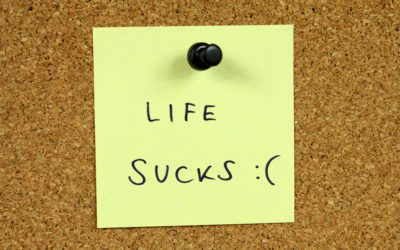The only real weakness in his game, as best I can tell, is that from time to time emotionally he acts like a nine year old, letting his frustration get the better of him to the point of occasionally breaking down in tears during a match. While this wasn’t so much of a problem early on, now that he regularly plays in competitive tournaments, it can lead to delay of game penalties and is a weakness his opponents can exploit.
So when his parents asked me if I could have a talk with him about it last weekend, I was both delighted and a bit daunted. After all, most of the people I’ve worked with over the years range from twenty to ninety, and even the teens I’ve worked with are further along in both their physical and cognitive development. How do you talk about the inside-out understanding and the keys to great performance with a nine year old?
His parents dropped him round last Saturday after he won a qualifying match in a tournament for twelve year olds that his coaches entered him in so he could learn to lose matches without losing heart. I had no plan in mind other than that we would take the dog for a walk on the long dirt access road in the hills near where we live and see what unfolded.
As we crested the first hill, I asked him if his parents had told him why we were having a talk.
“It’s because my mental game needs work, Mikey”, he said, in language that sounded way more sophisticated than I was expecting. “Sometimes I get really mad at myself if I make an unforced error, and then I make even more mistakes and you’re going to help me with that.”
I asked him if he ever made unforced errors without getting upset, or if he ever got upset with himself when he was winning. He said “no” at first, but then as we carried on he started to remember times where everything was going well and he still got frustrated and other times where nothing was going particularly well but he was able to just enjoy playing the game.
“So if it’s not the unforced errors and it can happen even when things are going well, what do you think it really is that frustrates you?” I asked.
Almost as if on cue, a large pickup truck came barreling down the road kicking up a dust cloud that enveloped us. While the dog seemed unperturbed, my godson and I covered our faces and an idea occurred to me.
“Let’s wait here and see what happens to the dust,” I said.
We did, and of course within a minute or so it was like the truck had never been there.
“That dust is a lot like the frustration. If you don’t try to do anything with it, it will settle back down all by itself.”
“My coaches tell me that”, he said. “They say I need to just let it go.”
“Do you know how to do that?”
“Not really.”
We walked on in silence, enjoying the views and the dog chasing shadows on the side of the road. Several other cars and trucks drove by, some kicking up clouds of dust and some barely bringing up any dust at all.
“Those cars are like thoughts in our head,” I said. “Some of them bring up a lot of dust, and some just pass through without our really noticing.”
I saw his eyes light up a bit. “So can you show me how to stop the cars that make the dust?”
“No, buddy – it doesn’t really work that way. Some cars make lots of dust, some don’t. We don’t get to decide which cars come, or when they come, or even how many of them are driving down the road today.”
He seemed disappointed, and I carried on.
“Now imagine that you could stop one of the cars when it drove by, and you made him drive back and forth and back and forth over the same bit of road. What would happen?”
“Big dust!” he said, the twinkle returning to his eyes.
“That’s right. And that’s what it’s like when we keep thinking about the same thing and running over it in our mind again and again and again. Instead of the cars moving on and the dust settling, our whole head gets filled up with dust and we can’t see where we’re going or what we’re doing.”
“So if I can’t control the cars or the dust,” he asked, “how am I going to stop getting so frustrated?”
I thought for a moment.
“When you’re playing really good tennis, do you think about how you’re feeling?”
“Not really. I sometimes think about which side of the court to hit to or whether to come up to the net, but mostly I just play.”
“That’s right,” I said. “That’s why you don’t have to try to stop the cars.”
“Huh?” he asked, looking at me sideways with an exaggerated Scooby Doo voice.
“When the next car comes, let’s stop and study the dust.”
A few minutes later we did, and our scientific inquiry came to the conclusion that the dust had a very “dusty” quality to it.
“Now watch what happens if after the next car comes we just keep walking.”
The car came, the dust came up, and we just kept walking.
“That’s the secret right there, buddy,” I said. “You don’t have to do anything about the dust, or the cars that kick up the dust. You get to just play tennis. Everything else will take care of itself.”
At that point we turned off the road and onto a hiking trail. The dog ran on ahead and our conversation turned to winning and losing.
“If two tennis players were going to play a match and one of them was undefeated at fifty wins to no losses and the other one had won twenty games but lost thirty, who do you think would win?”
“The undefeated one”, he replied.
“What if the one who was undefeated was playing against six year olds and the one who was 20 – 30 was playing against professionals?”
“Then I think the one who’d only won twenty games would probably win.”
“That’s what I think too,” I said. “Winning and losing is mostly about the level of competition you’re facing. It doesn’t mean anything about you – you’re OK either way. And the cool thing is, when you play against people who are better than you, you usually get better.”
“I know,” he said, once again sounding like someone who was much wiser than his years. “That’s why I’m playing in this tournament. I already know how to win, so I guess it’s time I learned how to lose.”
We were hiking down a hill back to the main road and he slipped and fell. After checking that he was alright, I noticed that his lip was quivering and he looked like he was about to cry.
“Dust?” I asked him.
“Big dust!” he exclaimed, and our conversation moved on to more important things, like school and Pokemon and what dogs are really saying when they bark.
The next day, he called me late in the afternoon to tell me that he had lost his match but played well even though he made lots of unforced errors. He thanked me for the conversation about the dust, and all was right with my world.
Is that it? Will he never again lose matches because he loses his cool on the court?
I’d be shocked. Thought is a constant variable, and no matter how clearly we see it in one moment, in the next our feelings once again look like they’re being caused by the luck of the draw or our opponent or even our “unforced errors”.
But he’s seen something about it now, and because what he’s seen is true, it will change the way he thinks and feels about his thoughts and feelings. If his love of the game continues, I’m sure his success will as well. But win or lose, he’ll be OK. He always has been. And regardless of our own history of victories and defeats, the same is true for all of us.
With all my love,
![]()





